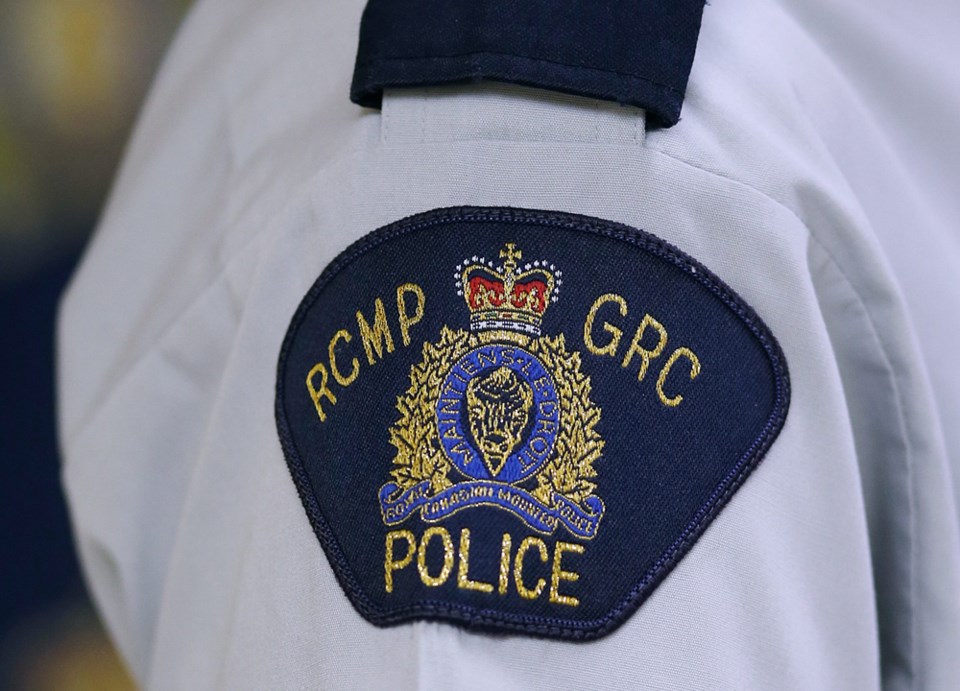Some Island Mounties are covering the yellow stripes on their uniform pants in solidarity with a growing campaign for higher pay and a union for RCMP officers.
Several officers in Sidney/North Saanich, West Shore, Sooke and Nanaimo RCMP detachments donned blue pants without the yellow stripe on Monday, joining detachments in North Vancouver and Sunshine Coast that took action last week.
Officers are using the silent protest to highlight pay discrepancies between Mounties and municipal police officers, and staffing shortages. Officers who participate in the protest could face discipline for being out of full uniform.
Max Fossum, a former West Shore RCMP officer who retired last year, said Mounties are so short-staffed and overworked that he calls the national force the “Walmart police” because they’re expected to “do more with less.”
Annual pay for RCMP constables starts at $50,674, while Victoria police officers, for example, start at $65,510. An RCMP first class constable makes $86,110, which is about $10,000 less than a five-year constable in Greater Victoria.
Fossum said many RCMP officers are switching to municipal forces for the higher pay, which leaves significant staffing shortages. “There are reasons why the RCMP doesn’t want to tell you how many members they’re losing to the municipal departments. They don’t want to release those figures. Why? Because they’re in trouble.”
Victoria police hired six Mounties between 2007 and 2015 and Saanich police has hired at least six Mounties since 2014. Central Saanich police has hired three former RCMP officers in the last five years and Oak Bay police has hired six in the same period.
Fossum said if RCMP detachments are understaffed, the public could be at risk. “The public is in jeopardy and we’re in jeopardy as well,” he said, adding he supports the work action because it’s giving members a way to have their voices heard. But RCMP officers are reluctant to speak out publicly for fear of discipline. “If you speak up against anybody, they’re going to remember and you won’t get promoted. The only way you get promoted is if you follow the line.”
Sunshine Coast RCMP Sgt. Chris Backus has been verbally reprimanded for doing media interviews and was told to stop talking to reporters.
Last week, Public Safety Minister Ralph Goodale announced retroactive salary hikes for the RCMP, which include a 1.25 per cent raise effective Jan. 1, 2015, another 1.25 per cent raise effective Jan. 1, 2016, and a 2.3 per cent market adjustment effective April 1, 2016.
Fossum said that increase is “nothing” and at least 10 per cent would be needed for RCMP pay to be comparable with municipal forces.
The National Police Federation said in a statement the pay increase “does very little in moving the RCMP into a competitive salary range to attract and to retain qualified candidates.” It is unlikely to change the RCMP’s position as 72nd of 80 Canadian police forces when it comes to pay, the federation said.
The National Police Federation is vying with the Mounted Police Professional Association to form a union that would represent rank-and-file members.
The Supreme Court of Canada ruled two years ago that RCMP officers have the right to unionize. The federal government passed Bill C-7, which would pave the way for a labour relations regime in the RCMP.
However, a Senate committee identified major weaknesses in the legislation, such as the fact that it wouldn’t have let a union negotiate issues such as equipment, harassment and discipline. The Senate sent the bill back to the House of Commons and the government has yet to redraft it.
In 2016, senior RCMP brass received $1.7 million in bonuses, including $295,514 for six deputy commissioners, a nine per cent increase over the previous year’s bonuses.
“So you see the commissioner and senior upper management getting big bonuses, yet we see nothing happening for the members who are on the front line policing,” Fossum said. “So no wonder the members are getting ticked.”
— With files from Jack Knox



